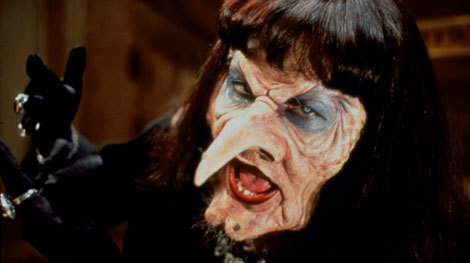“What cloy pretentiousness!” I hear you say. Deep inside your dull, dense skull, the literary snot in you is bouncing up and down with excitement and indignation. “Having created useful, popular technology,” you complain “this guy thought himself able to lecture everybody on any subject.” You’re sickened by the pose he strikes, as unnatural as the warm, worldly style of writing. You want to tell everyone you meet that Jobs wasn’t carried on the wings of destiny with his heart as a map; he got there by ingenuity, dedication, and some luck. “He’s a technocrat who has mistaken himself for Jesus!” Having fired your argumentative six-shooter, you strut away. Your snotty ego feels above it all, having taken down an icon with a purposeful disregard for the proximity of his passing. As you strut away, however, I step from the shadows. I come into focus behind you, as you halt, suddenly aware of my presence. You know that I’m here to make you re-examine what you’ve said, and your ego shudders.
Pull back and you’ll see why Steve smiles so much in his picture. His message is, in essence, ‘my advice is not to take advice.’ This ridiculous, self-defeating message was not mistake – Jobs wasn’t that sloppy – it was a deliberate attempt at a more subtle message. It almost screams at you when he says that your heart and intuition know the way. What’s his frame of reference for my heart? Exactly: his heart! He mustn’t have meant this to be taken at face value. A man as thorough as he was couldn’t have overlooked it. It’s a coded message, intended to pass over the heads of his acolytes and hipster customers. It tells like-minded intellectuals – who communicate like beacons on the peaks of great mountains – a profound truth. Those of us who think in the cool space, high above the hoi polloi, know this truth already: all advice is useless. Steve must have recognised this early on in life, having a knack for discerning what does and doesn’t have usefulness.
I know you feel rattled, and perhaps you’re indignant about such a blanket statement. “Surely, not all advice is useless?” you say. Perhaps not all advice, but certainly the unsolicited life advice that excretes from the mouths of seemingly everybody. Let’s break it down. There are two types of people who will hear your advice: those who know what you are talking about and those who don’t know what you’re talking about. Perhaps there’s a third category, for those who think they know what you’re talking about. We’ll address them in a moment. Firstly, let’s look at those who know what you’re talking about. They already know what you’re telling them, so your advice is pointless, unless you want to bore them or listen to how wonderfully you enunciate words. Those who don’t know what you’re talking about can be bored just as easily and, again, you can admire the fascinating sound of your own voice. The difference is, of course, that they can’t relate to what you’re talking about and don’t really have any understanding about what you’re trying to save them from. A person needs to have had similar experiences for them to appreciate why you’re talking at them didactically, and once they’ve had those experiences – experiences strong enough to stamp some new knowledge or ideas in their heads – then they are no longer in need of your advice. If experience doesn’t change someone, you’d have to be pretty confident about your oration to assume that you will. That’s assuming you have won the confidence of the would-be listener. You’re starting on a bad foot after all, as giving advice tacitly says “I’m assuming I know what’s good for you. I made many mistakes in my life, and I’m going to assume that you’re making them, too.” The third person, who thinks they know what you’re saying, is your best prospect. He or she will misconstrue you, but it may turn out well. I find that familiarity can fade the colour out of something. This is why those who know what you’re talking about will find your advice boring. Those who think they know what you’re saying may find an attractive novelty in your words, though they won’t comprehend their substance. Perhaps that person will be motivated to do something good, but this will be an unintended side-effect, and your advice won’t be eligible for credit for the good that comes from it. That would be like thanking a corporation for the nice house you bought with the money you earned from them, as if they gave a damn about your happiness. And on that note, I’ll slip in an expression that a student of mine told me was common in Brazil: ‘If your advice was worth anything, people would pay for it.’
Finally, if you still think giving advice is worthwhile, listen to a song you cherished from yesteryear. How many of his gospel choir enshrined pearls did you truly carry with you this past decade? Exactly.



